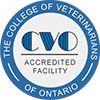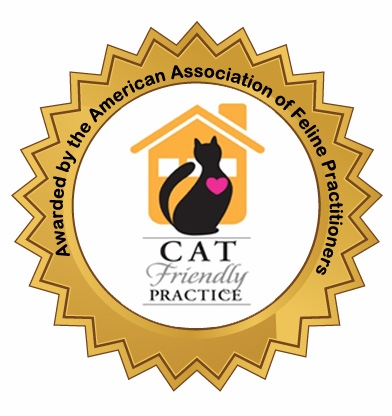
Everyone understands that their cat needs to be vaccinated to prevent common and serious diseases. However, if your indoor cat is on an extended vaccine protocol, do you still need to bring him/her in for a yearly checkup? In this article I will explain the many benefits that come along with a yearly wellness examination and what you can expect at that visit.
In the first part of the examination we will collect a history to learn more about your cat’s environment and find out what your cat’s ‘daily rituals’ include. This will help us determine if your cat’s environmental needs are being met. Through education of these needs and environmental enrichment, you will be reducing the risk of your cat developing behavioural problems that are associated with stress. Stress can manifest as urination or defecation outside of the litterbox, withdrawal/hiding and sometimes even aggression. Let us help you avoid these common problems!
After we have collected a complete history, we will then perform a full physical examination. This involves a total body check of all systems. There are a myriad of subtleties that can be detected on examination that may not cause any change in your cat’s behaviour at home. With prevention in mind, the goal is to identify potential problems early so we can appropriately and effectively deal with them. This allows us to formulate a treatment plan before your cat develops signs of illness or pain. In many circumstances by the time your cat starts acting ill the disease process is already advanced and may be difficult or even impossible to fix.
We can also help avoid painful dental issues and costly dental procedures by reviewing oral healthcare. Dental disease is very common in cats over the age of three, so ideally we will have a plan for maintaining oral hygiene at a young age. An oral examination may reveal that your cat is in need of a dental cleaning or even extractions. Routine dentals can help prevent the progression of dental disease.
Another very common problem in our feline friends is obesity. At our wellness examination we will evaluate your cat’s body condition score and review how much and what type of food you are feeding. We will make a nutritional recommendation based on the physical examination and can advise you how much food to feed on a daily basis. It can be difficult to reverse the effects of obesity- prevention is best!
We will also address parasite control at this examination. Some parasites can be transferred from animals to people and it is important to be aware of at-risk individuals (children, elderly or immunocompromised people). A common misconception is that indoor cats are not at risk for parasites- yet there are a few sources of parasites within our households. Ingestion or contact with insects such as house flies and mosquitoes or even potting soil from household plants can be sources. We will cover how to control for both internal and external parasites and create a deworming protocol that works for your household.
Finally, a key component to ensuring your cat’s health inside and out involves performing the appropriate diagnostic tests. The recommended tests will vary depending on the age of your cat. For instance, it is important to know the FIV/FeLV viral status of your kitten (especially in a multi-cat household) whereas testing for hyperthyroidism and kidney disease is important in the senior cat. We will review what tests are recommended for your cat’s lifestage.
In closing, hopefully you can see the value in the many topics covered during your cat’s health examination. They are as much a part of your family as your canine companion and they deserve the same care and consideration. We want to help you enjoy as many happy and healthy years with your kitty as possible. Please call us today to book in for your cat’s annual wellness examination.
Dr. Gillian Park, BSc DVM
Associate Veterinarian, Erin Mills Pet Hospital
(c) Erin Mills Pet Hospital



